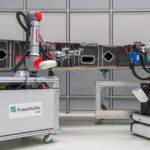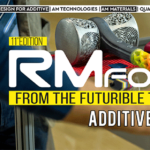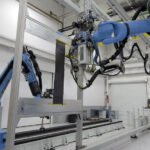London Underground (LU) is exploring ways to reduce delays for customers by trialling lighter Tube train doors using award-winning innovative aerospace technology. LU’s Innovation Team has led a group of industry experts including the NCC, Atkins UK, Wabtec Rail and UCL to explore using materials previously only used in aerospace composite materials to construct a commercially viable, lightweight train door.
This award-winning project is in its final stage with the prototype door currently undergoing final rigorous structural testing. This will ensure that the design meets the strictest regulations, ensuring safety for Tube customers.
For Tube customers the benefits of these innovative lighter doors are far-reaching. Customers would benefit from reduced journey times and reduced waiting times on platforms; a saving of 530,000 passenger hours a year. Furthermore, reduction in mechanical stresses in other parts of the door system would reduce the frequency of door-related failures leading to fewer delays.
The total weight saving of using the lighter composite material for doors across a Central line train would be 1.25 tonnes, with huge benefits on train energy consumption and track wear.
David Waboso, London Underground’s Capital Programmes Director, said: “This pioneering project is about our engineers and partners harnessing the latest in technological innovation in order to improve the journeys of our millions of customers. By using this aerospace technology we have the potential to reduce delays and crowding for customers at a time when more and more people are using the Tube. At the same time we can also save millions of pounds to be re-invested in our services and also reduce our impact on the environment.”
Jeff Ive, Engineering Capability Lead at the National Composites Centre and technical lead on the project, said, “This project has taken full advantage of the NCC remit to cross pollinate technologies from different sectors. Using materials often used in an Aerospace application and processing them in a novel manner we have been able to deliver an end product that has the potential to improve a public service for generations to come. We have drawn on the experience and insight of engineers, technicians and supply chains across numerous sectors to deliver this challenging project. It is a pleasure to receive acknowledgement from the rail industry, who we look forward to working with more in future. There is a good opportunity, especially in the field of environmental advance, due to the potential around the recyclability of this product.”
For London Underground the application of these innovative new doors on the Central line alone would mean savings of over £5 million a year.
• Energy savings of £100,000 a year;
• passenger journey time savings worth £4.7m a year;
• Reduction in track wear, saving £400,000 a year;
In the long term this research will be a push towards lighter trains in the future, which will reduce operating and maintenance costs. The research also offers the potential to see longer doors installed on existing Tube trains, which would reduce boarding and alighting times. For customers this would mean the possibility of increasing the number of trains running on the Tube.
The project has already won a Rail Industry Innovation Award in the ‘Environment’ category and has been shortlisted for the prestigious Stephenson Innovation Award with the winner to be announced later this year.
Fonte: National Composites Centre












